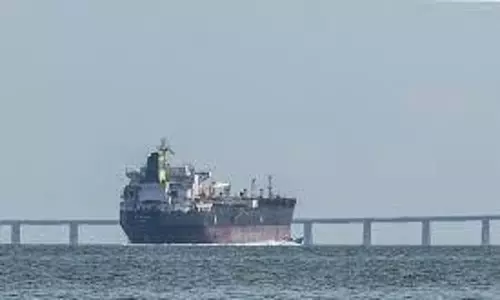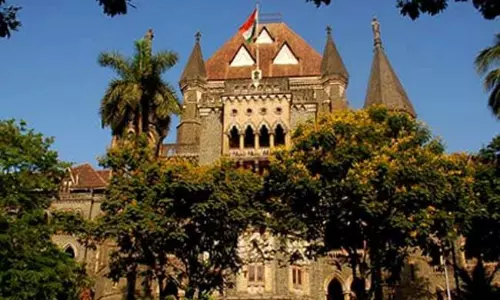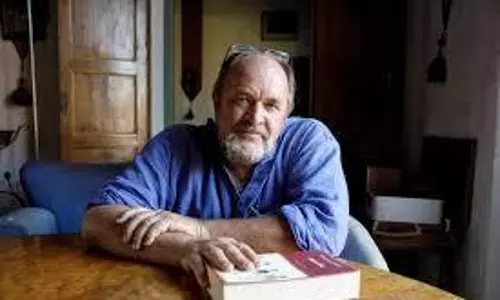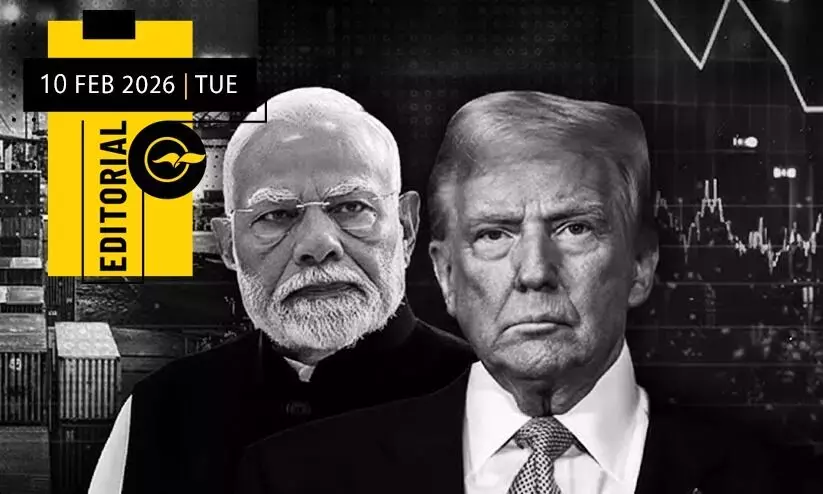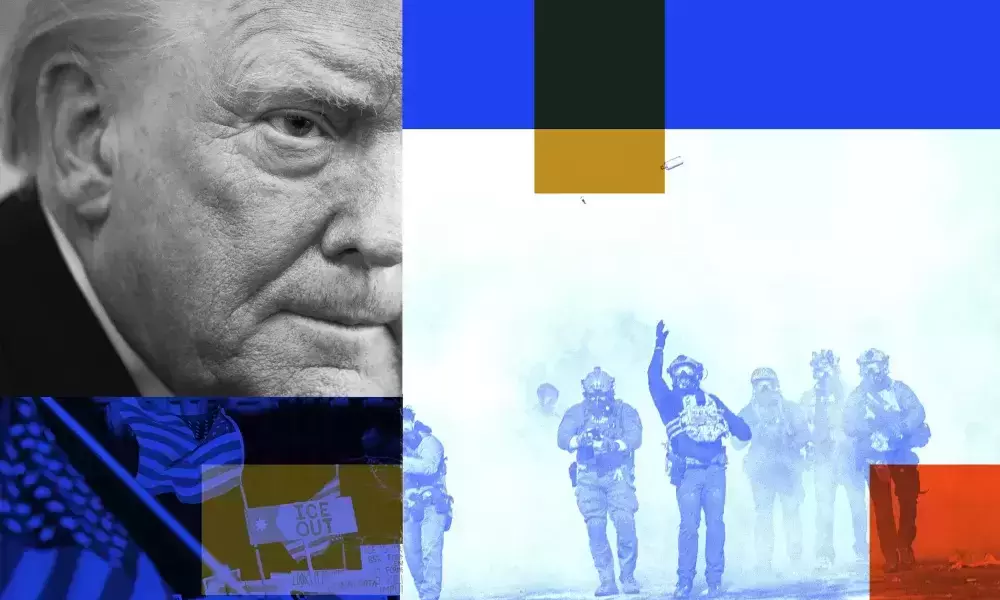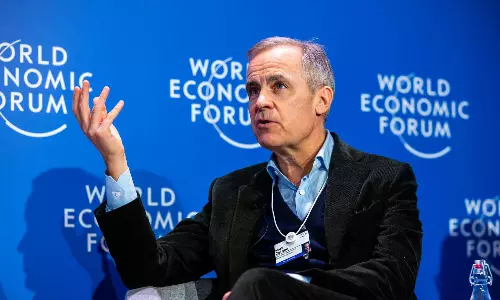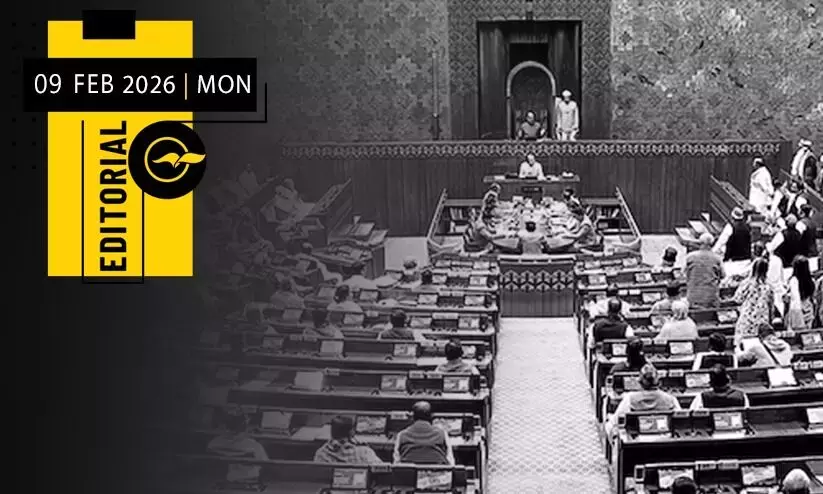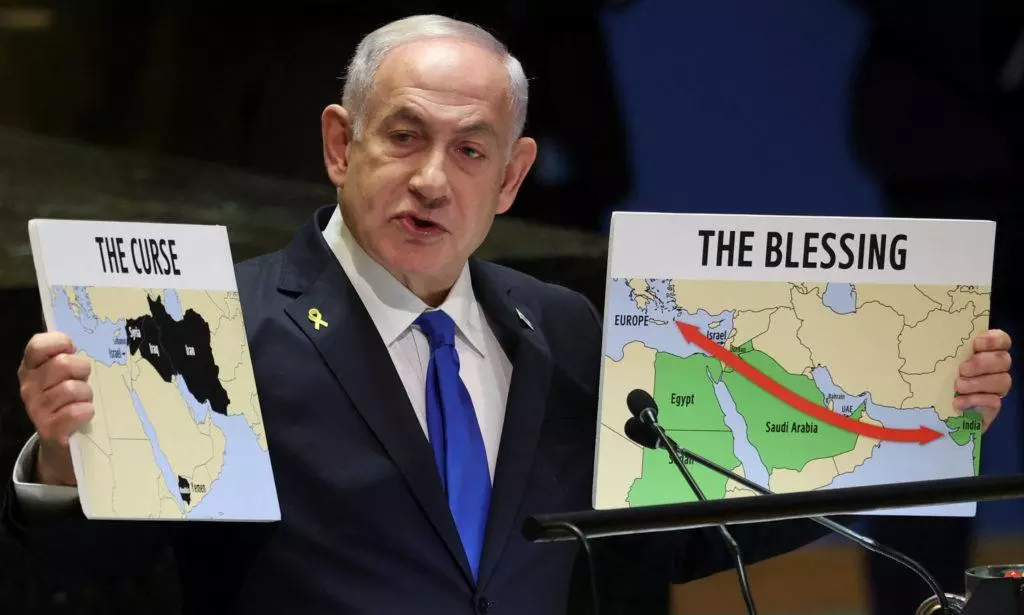
Israel pounds munitions to target Nasrallah as Netanyahu vows more attacks at UN
text_fieldsIsrael carried out its most intense airstrike on Beirut in nearly a year of fighting with the Lebanese militant group Hezbollah, levelling several buildings in the southern suburb of Haret Hreik, while Israeli Prime Minister Benjamin Netanyahu has openly defied international calls for a ceasefire.
The target appears to have been Hezbollah’s leader, Hassan Nasrallah, a significant figure and ally of Iran. While the immediate casualties include six confirmed deaths and at least 91 injuries, the Lebanese health ministry warns the toll could rise as rescue teams continue to sift through the rubble. Initial reports from the scene suggest that hundreds could have perished.
The strikes, which took place late Friday afternoon, shook the Lebanese capital with six loud explosions reverberating across the city. Vast clouds of smoke were seen from as far as Batroun, located about an hour away from Beirut.
Footage from the devastated neighbourhood showed massive craters, collapsed apartment blocks, and vehicles that had fallen into pits created by the blasts. Some of the craters were large enough to swallow cars, with debris scattered across the area. The use of bunker-busting munitions was evident, with footage showing powerful underground explosions, indicating the deliberate targeting of deeply entrenched structures.
Hezbollah, the Iran-backed Shia political and militant organisation, has been in near-daily confrontations with Israel since early October. The latest escalation follows nearly a year of cross-border skirmishes, and in recent days, Israeli forces have significantly increased their offensive, conducting air raids that have claimed more than 600 lives in Lebanon. Hezbollah sources initially claimed that Nasrallah survived the strike, but Israeli officials were still verifying the results of their operation.
Speaking at the UN General Assembly, Netanyahu reaffirmed Israel's stance on Hezbollah and Gaza, pledging that military operations would continue until Israel achieves its strategic goals. Netanyahu’s address, which followed a walkout by several diplomats in protest of Israel’s actions, suggesting that the current war could escalate further if no resolution is reached.
Israel, emboldened by international support, particularly from the United States, continues to assert its right to defend itself against both Hezbollah and Hamas.
The conflict between Israel and Hezbollah, which aligns itself with Palestinian resistance to Israeli military actions, has displaced tens of thousands of people on both sides of the Israel-Lebanon border.
While most of the skirmishes have been limited to this area, the scope of Israeli attacks on Hezbollah targets has grown considerably over the past week. The Lebanese health ministry has warned that the number of displaced people within Lebanon has swelled to more than 90,000 since the latest series of raids began on Monday.
This escalation between Hezbollah and Israel has compounded an already dire situation in the region, where Israeli forces are also engaged in a brutal campaign against Hamas in Gaza.
The international community, particularly the United States, Egypt, and Qatar, has been pushing for a ceasefire to allow humanitarian efforts and negotiations to take place. However, attempts to broker peace have largely failed, with Israel continuing to insist that Hamas must be disarmed and removed from power in Gaza as a precondition for any long-term resolution. Despite the heavy toll on civilian lives, Netanyahu’s government remains steadfast in its belief that a total military victory is the only way to prevent future attacks on Israel.
On the diplomatic front, several world leaders at the United Nations denounced Israel’s ongoing military campaigns, criticising the civilian casualties and calling for an immediate halt to the violence.
Concerns are mounting that without a ceasefire, the conflict could spread even further, pulling neighbouring countries into a full-scale regional war. In Lebanon, Hezbollah's retaliatory actions and its close ties with Iran heighten fears that the conflict could evolve into a larger proxy war between Israel and Iran.





